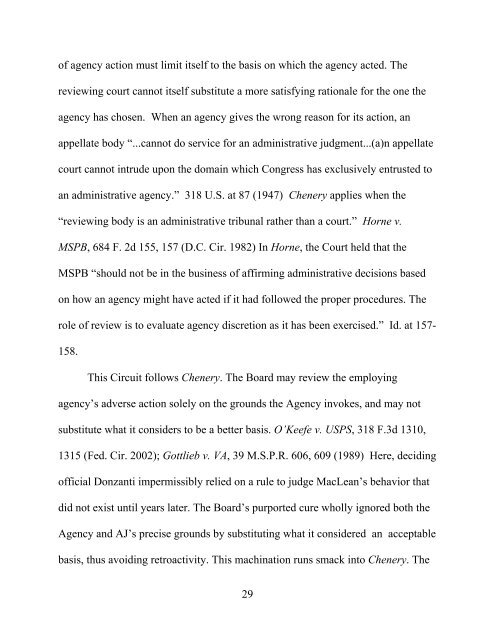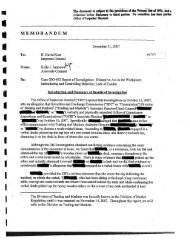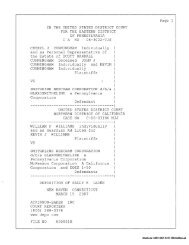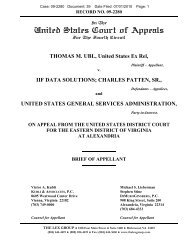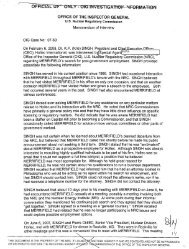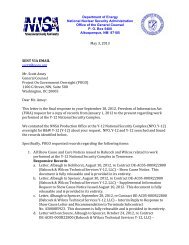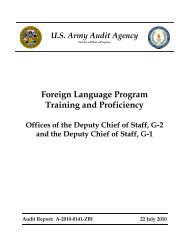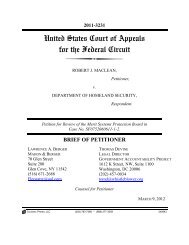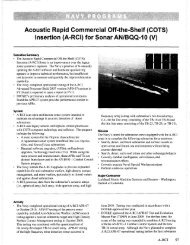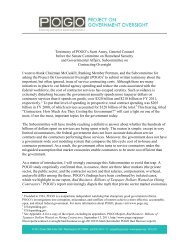United States Court of Appeals for the Federal Circuit
United States Court of Appeals for the Federal Circuit
United States Court of Appeals for the Federal Circuit
Create successful ePaper yourself
Turn your PDF publications into a flip-book with our unique Google optimized e-Paper software.
<strong>of</strong> agency action must limit itself to <strong>the</strong> basis on which <strong>the</strong> agency acted. The<br />
reviewing court cannot itself substitute a more satisfying rationale <strong>for</strong> <strong>the</strong> one <strong>the</strong><br />
agency has chosen. When an agency gives <strong>the</strong> wrong reason <strong>for</strong> its action, an<br />
appellate body “...cannot do service <strong>for</strong> an administrative judgment...(a)n appellate<br />
court cannot intrude upon <strong>the</strong> domain which Congress has exclusively entrusted to<br />
an administrative agency.” 318 U.S. at 87 (1947) Chenery applies when <strong>the</strong><br />
“reviewing body is an administrative tribunal ra<strong>the</strong>r than a court.” Horne v.<br />
MSPB, 684 F. 2d 155, 157 (D.C. Cir. 1982) In Horne, <strong>the</strong> <strong>Court</strong> held that <strong>the</strong><br />
MSPB “should not be in <strong>the</strong> business <strong>of</strong> affirming administrative decisions based<br />
on how an agency might have acted if it had followed <strong>the</strong> proper procedures. The<br />
role <strong>of</strong> review is to evaluate agency discretion as it has been exercised.” Id. at 157-<br />
158.<br />
This <strong>Circuit</strong> follows Chenery. The Board may review <strong>the</strong> employing<br />
agency’s adverse action solely on <strong>the</strong> grounds <strong>the</strong> Agency invokes, and may not<br />
substitute what it considers to be a better basis. O’Keefe v. USPS, 318 F.3d 1310,<br />
1315 (Fed. Cir. 2002); Gottlieb v. VA, 39 M.S.P.R. 606, 609 (1989) Here, deciding<br />
<strong>of</strong>ficial Donzanti impermissibly relied on a rule to judge MacLean’s behavior that<br />
did not exist until years later. The Board’s purported cure wholly ignored both <strong>the</strong><br />
Agency and AJ’s precise grounds by substituting what it considered an acceptable<br />
basis, thus avoiding retroactivity. This machination runs smack into Chenery. The<br />
29


